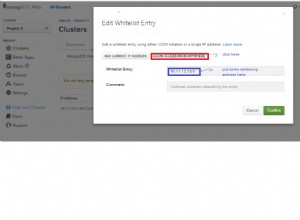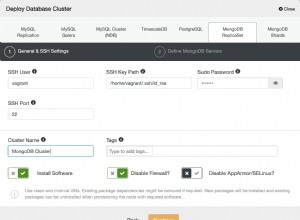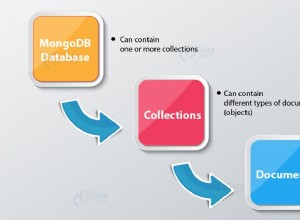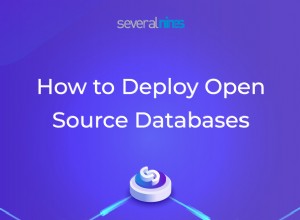Per avere tutto con una sola query utilizzando la funzione $lookup del framework di aggregazione, prova questo:
db.User.aggregate(
[
// First step is to extract the "friends" field to work with the values
{
$unwind: "$friends"
},
// Lookup all the linked friends from the User collection
{
$lookup:
{
from: "User",
localField: "friends",
foreignField: "_id",
as: "friendsData"
}
},
// Sort the results by age
{
$sort: { 'friendsData.age': 1 }
},
// Get the results into a single array
{
$unwind: "$friendsData"
},
// Group the friends by user id
{
$group:
{
_id: "$_id",
friends: { $push: "$friends" },
friendsData: { $push: "$friendsData" }
}
}
]
)
Supponiamo che il contenuto della tua raccolta Utente sia il seguente:
{
"_id" : ObjectId("573b09e6322304d5e7c6256e"),
"name" : "John",
"age" : 30,
"friends" : [
"userId1",
"userId2",
"userId3"
]
}
{ "_id" : "userId1", "name" : "Derek", "age" : 34 }
{ "_id" : "userId2", "name" : "Homer", "age" : 44 }
{ "_id" : "userId3", "name" : "Bobby", "age" : 12 }
Il risultato della query sarà:
{
"_id" : ObjectId("573b09e6322304d5e7c6256e"),
"friends" : [
"userId3",
"userId1",
"userId2"
],
"friendsData" : [
{
"_id" : "userId3",
"name" : "Bobby",
"age" : 12
},
{
"_id" : "userId1",
"name" : "Derek",
"age" : 34
},
{
"_id" : "userId2",
"name" : "Homer",
"age" : 44
}
]
}




